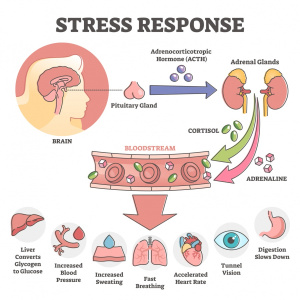If when reading this, is your first-time hearing about Nootropics. Don’t invest too much into it. Nootropics are often referred to “Smart Drugs” or “Cognitive Enhancers.” Advertising according to a 2021 polars market research report valued the nootropic market at 10.69 billion dollars. It event predicted to have a strong increase. Why am I telling you this? Well, the effects of certain drugs are all a bit blurred. Certain natural supplements have showed support in increasing cognitive function. Yet it should not be expected to increase you IQ score. Yet that is how some advertising makes them seem. I personally like to think of them as something to aid in the brain’s resilience.
So many things factor into our cognitive function like genetics and environment. Taking a gummy supplement should not be the only thing you do in hope of protecting it. Creating stimulation environment, adding thing of value to you day to day life greeting effects your overall health. I’d like to think of it as the classic saying “use it or lose it.” Environment enrichment has been shown to increase BDNF and strengthen the communication between neurons. In animal’s studies enriching an environment was done by giving them bigger enclosures or things where they can explore. One study added a running wheel. Another way was social settings. This study reported by changing these environmental factors, change the rate of neuronal cell death and inflammatory elements in the brain.
How does this exactly happen?
Cortisol is a major factor. Cortisol is a hormonal steroid produce due to stress. After adrenaline is produced in your body the hypothalamic pituitary adrenal (HPA) axis. This system gives humans their flight or fight instincts. I am sure you have heard the crazy stories people have done while experiencing this. This walked of a major crash, felt no pain at the time. Yet have you ever thought of the impact of the neurochemistry that needs to happen to allow this. The HPA axis plays roles in the metabolic, immunity, cardiovascular and cognitive systems.

Well car accidents are not the only thing that triggers this cascade. Stressful events such as arguments, unsafe interactions, poverty, and childhood trauma. There are endless studies done about the effects of being raised in an abusive home or poverty and how it effects cognitive health.
Exposure to stressors in early life and triggering this pathway causes a tolerance to build up. In a study baseline cortisol level of kids didn’t not rise as much to “stressful images” then for kids who did not experience as many stressful evets. Their baseline was actually reported to be higher in general. One study did mention if having a very severe traumatic experience, but not common. Showed to be more sensitive to stress later on in life. Another study looked at poverty, at ages 6-10 nightly cortisol levels had a clear correlation to be higher if their parents had a lower reported income. In the ages of 10 to 16 not only the cortisol levels, but BMI, and blood pressure had a correlation as well.
Wouldn’t it be good to have a lower tolerance to stress?
I mean certain aspects to this question; most people would say yes. Not to panic over little things seems nice. Yet in the HPA axis to create this tolerance, overall, just creates a constant higher baseline. That thickens myelination of neurons slowing down communication between cells and lower neuron plasticity. Cushing disease is the result of having too much cortisol produced. According to Mayo Clinic symptoms include:
- weight gain in the trunk, with thin arms and legs.
- Weight gain in the face. This is sometimes called moon face.
- A fatty lump between the shoulders. This may be referred to as a buffalo hump.
- Pink or purple stretch marks on the stomach, hips, thighs, breasts and underarms.
- Thin, frail skin that bruises easily.
- Slow wound healing.
I want to make it clear that a stressful childhood doesn’t cause Cushing syndrome, but its symptoms are similar to those reported in the articles I mentioned above. It would be nice to take a supplement or 2 to try and prevent things like this or to insure we don’t lose cognitive function with age. There is just so much more that play a role in that. It can’t be that easy. Enriching your environment, making safe joyful spaces, surrounding yourself with people that you enjoy, going for walks and trying new things all can help though. Trying to eliminate stress in life is huge.